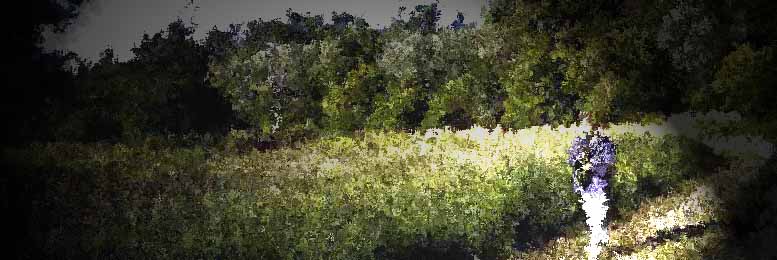26.8.2006 | 22:04
Er það grimmd að borða gæsalifrarkæfu?
Eins og ég hef áður minnst á er Margaret Wente einn af mínum uppáhalds dálkahöfundum. Í sínum nýjasta dálki veltir hún fyrir sér þeirri sektartilfinningu að borða, hvernig maturinn verður til og hvernig þau dýr sem "gáfu" líf sitt fyrir máltíðina okkar eru meðhöndluð.
Þetta er auðvitað þörf og umræða, alla vegna eins og málum er háttað í dag. Sjálfur velkist ég ekkert í vafa, ég borða kjöt og get ekki séð fyrir mér að því verði hætt. Ég geng jafnframt í leðurskóm og nota leðurbelti. En þó tel ég mig dýravin.
Er það þversögn?
Grípum nokkur atriði úr dálki Margaretar:
"These days, the inner lives of lobsters are the subject of intense debate. "Lobsters are primitive animals. They have no brain. They're like insects. They even look like insects," says Robert Bayer, executive director of the Lobster Institute at the University of Maine.
Lobster liberationists say otherwise. "They have a nervous system and sense, including vision, touch and chemical perception," says biologist Jonathan Balcombe. "There is even evidence that they play."
How would you like to end your life by being crammed into a holding tank and then plunged into a pot of boiling water? Maybe lobsters don't like it so much, either. And that is why Whole Foods Market, that avatar of ethical eating and upscale consumer values, has got out of the lobster-selling business.
Don't laugh. Where Whole Foods leads, others are sure to follow. Some retailers still sell lobsters but want to treat them more nicely on death row. To oblige them, Nova Scotia's Clearwater Seafoods is building "lobster condos" that will allow the privacy-loving crustaceans to live out their last days in the solitary splendour they seem to prefer. And squeamish chefs need no longer administer the coup de grace with a knife thrust into the lobster's brain, or whatever it is. They can now buy a humane device called a CrustaStun (price: about $4,000), which dispatches the creature instantly with an electric shock."
"But what about ducks? You can't deny that ducks feel pain. So is foie gras fowl play? Please don't tell me you don't feel just a tiny twinge of guilt that we allow our feathered friends to be force-fed through funnels thrust down their throats until their delicious livers swell to 10 times their normal size. I do feel guilt. But I eat foie gras anyway. I compromise by eating it only every other time I really want to. That is how I make a deal with my conscience.
In Chicago, foie gras is now illegal. The tender-hearted city fathers banned it from restaurant menus on the grounds of cruelty to animals. Restaurateurs are in revolt, and are flouting the law by offering foie gras for free (along with a salad that costs $25)."
"Contrary to popular belief, the modern animal-rights movement didn't start with Pamela Anderson. It probably started with R. M. Hare, a British moral philosopher of great renown. I took a course from him in 1970. One day, he described how he had decided to stop eating fish. (He had already given up meat and fowl.) The moral issue turned on whether a fish, when hooked, felt pain. He had researched the question carefully and concluded that it did. I couldn't decide whether Prof. Hare was a great visionary or a great eccentric. But his story made a big impression. It was the first inkling I had that there might be an ethical dimension to eating dinner."
" Great reform movements usually begin at the lunatic fringe. Today, just about everyone agrees that animals have rights -- even those who think that Peter Singer's nuts. But which animals? And what rights? Everybody draws the line in a different place. Some people like to eat monkeys, although most of us feel that monkeys are way too close to home. We are revolted by cruelty to cats. But, in some parts of the world, people roast cats for dinner. We would never eat a dog. So why do we eat pigs, which are at least as smart? More important, why do we make them suffer so much before we do? And why do people who are bothered by cruelty to lobsters still eat bacon?"
Svo mörg voru þau orð, en greinina í heild má finna hér.
Sjálfur vann ég í sláturhúsi að sumri til, þegar ég var 13 og 14 ára. Ég geri mér því ágætlega grein fyrir því hvernig "kaupin gerast á þeirri eyri". Um sumarið var slátrað nautgripum og svínum og svo byrjaði lambaslátrunin um haustið, ég náði ekki nema 2. vikum eða svo þangað til ég þurfti að fara í skólann.
En samt borða ég lambakjöt, skinku, svínahrygg, pylsur og uppáhaldið mitt er líklega vel "rare" nautalund. En samt vil ég að vel sé farið með dýrin, ekki bara vegna þess að ég telji það siðferðislega rétt, heldur skiptir ekki minna máli að ég tel það gefa okkur betra hráefni.
Ég hef áður sagt að hvalkjöt finnst mér herramannsmatur, en það er ekki líklegt til vinsælda hér, í þessu mesta selveiðilandi heims.
Er það þversögn?
En það er alveg ljóst að ég held áfram að borða kjöt, og er í engum vandræðum með að halda áfram að nýta mér gæði jarðar, það er ekki þar með sagt að ég sé hlynntur að veiða tegundir sem eru í útrýmingarhættu (margar hvalategundir eru það ekki), eða að ég styðji óþarfa grimmd gagnvart dýrum.
Ég geri mér fyllilega ljóst að að dýr láta lífið til að fylla diskinn minn og er nokkuð sáttur við það, en þú?
Meginflokkur: Stjórnmál og samfélag | Aukaflokkar: Ferðalög, Bloggar, Vísindi og fræði, Matur og drykkur | Facebook

Bæta við athugasemd [Innskráning]
Ekki er lengur hægt að skrifa athugasemdir við færsluna, þar sem tímamörk á athugasemdir eru liðin.